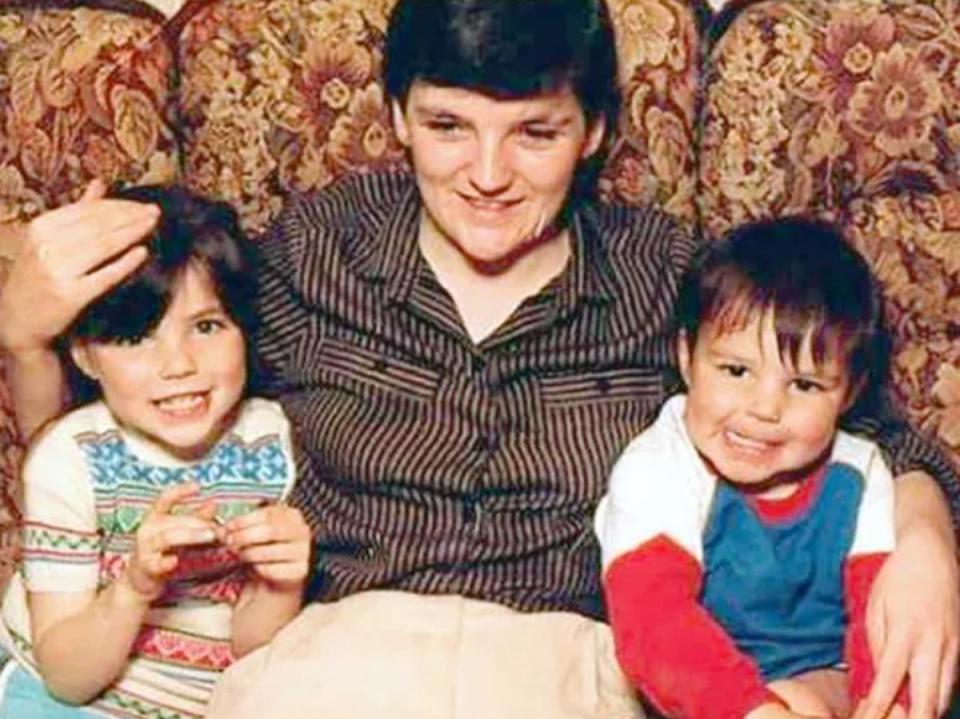Medics have warned that a prisoner’s “lengthy incarceration” under an indefinite jail term is creating “impermeable barriers” to his recovery as they called for him to be moved to hospital.
Thomas White has developed severe mental health problems in prison after serving more than 12 years for stealing a mobile phone under an abolished imprisonment for public protection (IPP) sentence.
Earlier this summer, The Independent revealed he had set himself alight in his cell in desperation as he lost hope of ever being freed.
Now fresh medical reports, shared exclusively with this publication by his heartbroken family, have laid bare the devastating toll the cruel sentence has taken on the father of one.
His sister Clara has begged the Ministry of Justice to move her brother to a hospital to get the care he needs amid fears “it is only a matter of time” before he makes another attempt on his life.

IPP jail terms were introduced under New Labour in 2005 and saw offenders given a minimum tariff but no maximum. They were scrapped in 2012 over human rights concerns but not for people already detained – leaving almost 3,000 prisoners like White languishing in prison with no release date.
The sentences have been branded “psychological torture” by a UN human rights expert after at least 90 IPP prisoners have taken their own lives.
An assessment by an independent consultant forensic psychiatrist last month found 40-year-old White, who has paranoid schizophrenia, has been suffering panic attacks and pacing in his cell at HMP Manchester as he struggles with psychosis and religious delusions.
Dr Deepu Thomas said: “He stated that he often felt very depressed and would stay in bed for long periods. Over the three months prior to the interview, he had been pacing his cell frequently.
“In the period leading up to our meeting, Mr White reported feeling more anxious and experiencing symptoms of panic attacks when thinking about his imprisonment.
“Mr White expressed feeling depressed about his long imprisonment without a set release date, citing this as the reason for his previous suicide attempt.”


The expert was commissioned ahead of a scheduled parole hearing but this had to be deferred because of White’s declining mental health.
Dr Thomas also noted White’s frustration over the upcoming hearing, which he believed would not lead to his release.
“He emphasised that he had never harmed a person and expressed deep remorse for the theft he had committed,” he added. “He stated he had confessed to God and been forgiven, questioning what more he could do.”
Dr Thomas concluded he should be moved to a medium secure unit where he will have a better staff-to-patient ratio, a more therapeutic environment and specialised resources.
In a previous report last year, the same psychiatrist said that the indefinite jail term was the “probable cause” of White’s poor mental health.
A second report last month from a chartered clinical psychologist also recommended that he should be transferred to hospital.
Dr Karyn Mannix said: “In my view, Mr White’s mental health will need to be stabilised before any work can be meaningfully attempted. I also wonder whether Mr White’s lengthy incarceration, his negative experiences of this and sustained feelings of hopelessness create impermeable barriers to this work being completed in a custodial setting.
“Based on my recent assessment of Mr White, I recommend that he is again assessed for a transfer to a secure hospital for treatment of his complex mental health needs.”
Clara White said her brother was a “healthy-minded” and “handsome” 27-year-old when he was handed an IPP sentence with a two-year tariff for robbery just four months before the sentences were outlawed.
Watching him deteriorate in prison while his son Kayden – now 14 – grows up without his father, has taken a toll on Clara and her mother Margaret, who are campaigning for justice for all IPP prisoners.
“It’s making me ill. My mum is ill with it. I am not even asking them to release him, I am asking them to place him in a hospital for however long it takes,” she said.
“I want to get my brother his right to healthcare and for them to right the wrong of what’s happened to him.”


She has been battling for him to be moved but he was last year turned down for a bed after hospitals claimed he would be better off in a familiar prison environment.
“How can you compare a psychiatric hospital to a prison where somebody is kept in 23 hours a day? He’s just fed medication like an animal that keeps him sedated and keeps him quiet,” she said.
“He’s not taken one step forward to progress and I feel like it will be too late for Thomas soon.
“They have a duty of care to help mend him. They have a duty of care to help undo what they have done.”
Earlier this month, Labour peer Lord Woodley introduced a private member’s bill to help prisoners trapped in the “torture sentences”.
He said keeping almost 3,000 prisoners locked up under an abolished jail term during a prison overcrowding crisis “makes no sense at all”.
The bill comes after The Independent has repeatedly called for all IPP prisoners to have their sentences reviewed.
A Ministry of Justice spokesperson said: “It is right that IPP sentences were abolished. The lord chancellor is committed to working with organisations and campaign groups to ensure the appropriate course of action is taken to support those still serving IPP sentences.
“The Prison Service continues to provide additional support to those still in custody, including improving access to rehabilitation programmes and mental health support.”
